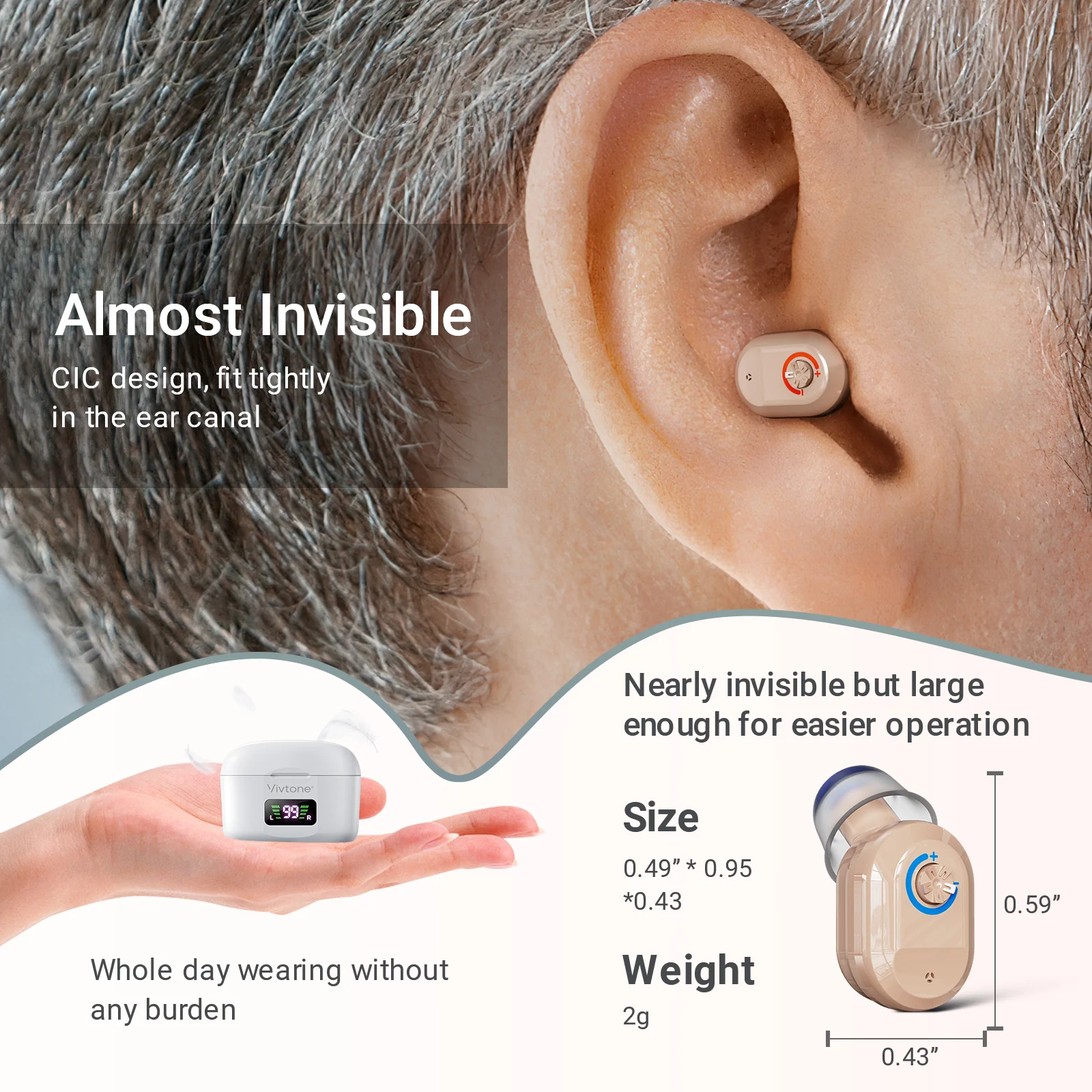Unlocking the Gift of Sound: Discover the Perfect Over-the-Counter Hearing Aids for Seniors!
As we age, many of us face the challenges of declining hearing abilities. Hearing aids play a crucial role in bridging the gap between sound and silence, significantly enhancing the quality of life for seniors. With the growing availability of over-the-counter (OTC) hearing aids, there is now a more accessible option for those who may not have the means or desire to invest in prescription devices. OTC hearing aids come with numerous benefits, including affordability and ease of use, allowing seniors to regain their connection to the world around them. This article aims to explore the best over-the-counter hearing aids available for seniors, helping them unlock the gift of sound.

Understanding Hearing Loss in Seniors
Hearing loss is a common issue among seniors, affecting nearly one in three individuals aged 65 and older. The causes of hearing loss can vary, ranging from age-related changes in the inner ear to exposure to loud noises over a lifetime. Conditions such as diabetes and cardiovascular disease can further exacerbate hearing issues. The impact of untreated hearing loss can be profound, leading to social withdrawal, depression, and a decline in cognitive abilities. Addressing hearing loss early is essential; it allows seniors to maintain their independence, engage in conversations, and enjoy activities that enhance their overall well-being. A friend of mine, whose mother recently began using a hearing aid, shared how her mother’s newfound ability to hear clearly has revitalized her social life, allowing her to participate more actively in family gatherings.
What Are Over-the-Counter Hearing Aids?
Over-the-counter hearing aids are devices that can be purchased directly by consumers without a prescription or professional fitting. They are designed to amplify sound for adults with mild to moderate hearing loss, providing a convenient and cost-effective alternative to traditional hearing aids. The regulations surrounding OTC hearing aids have evolved, with recent legislation allowing for their sale in pharmacies and online, making them more accessible than ever. These devices are typically user-friendly, featuring simple controls and adjustable settings that cater to individual preferences. Many seniors appreciate the independence that OTC options offer, as they can self-manage their hearing needs without relying on frequent visits to healthcare professionals. This accessibility has transformed the landscape of hearing assistance, allowing seniors to take charge of their hearing health.
Key Features to Look for in Hearing Aids for Seniors
When selecting hearing aids, seniors should consider several key features that cater specifically to their needs. Comfort is paramount; many seniors prefer lightweight models that can be worn for extended periods without discomfort. Ease of use is also critical, as seniors may struggle with complicated technology. Look for hearing aids with intuitive controls and clear instructions. Battery life is another important factor; devices with longer battery life mean less frequent changes, which can be a hassle for seniors. Additionally, sound quality and amplification options should be top priorities. Features such as noise cancellation and adjustable amplification can significantly enhance the listening experience in various environments. A friend of mine recently mentioned that her father had a positive experience with a hearing aid that offered customizable settings, allowing him to adapt to different settings, whether he was at a quiet dinner or a bustling family event.
Top Considerations When Choosing Hearing Aids
Before purchasing hearing aids, seniors should take several factors into account. Lifestyle plays a significant role; for instance, individuals who enjoy socializing may need devices with advanced noise cancellation features, while those who prefer quieter environments might prioritize simplicity and comfort. It's essential to consider hearing sensitivity, as some seniors may have specific frequencies they struggle to hear, necessitating specialized amplification settings. Budget is another crucial consideration; while OTC hearing aids are generally more affordable than prescription models, prices can still vary widely. Seniors should determine what they are willing to spend and explore options that fit within their budget. Lastly, consulting with a healthcare professional can provide valuable insights, especially for those who may be unsure about their level of hearing loss or the best type of device for their needs. Personal experiences from others can also guide decisions, as hearing aid success stories often come from shared journeys of trial and error.
Empowering Seniors Through Accessible Hearing Solutions
In conclusion, selecting the right over-the-counter hearing aids can dramatically enhance the quality of life for seniors, allowing them to reconnect with their loved ones and their surroundings. Understanding the nuances of hearing loss, the benefits of OTC options, and the essential features to look for can empower seniors to make informed decisions. As we have explored, taking into account personal lifestyle, hearing sensitivity, and budget considerations can lead to a successful hearing aid experience. We encourage readers to explore their options thoughtfully, considering their unique needs, and embark on the journey to rediscover the joy of sound.








